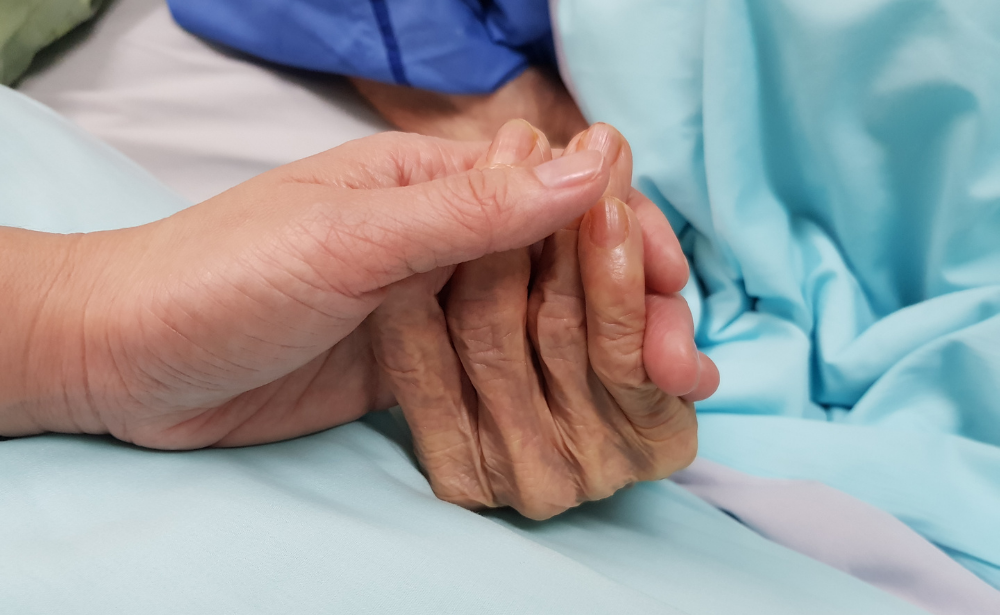在医学教育领域,接触各种病例的价值怎么强调都不为过。其中,姑息关怀病例具有独特的意义。世纪大学的MBBS课程与姑息关怀协会(Palliative Care Association Sibu)合作,认识到姑息关怀在塑造未来医护专业人员上所扮演的重要角色。这项合作不仅加强了学生们的沟通技巧,同时也将他们塑造成更有同理心与更精通的医生。
姑息关怀是一种专门的医疗护理形式,其重点是缓解与严重疾病相关的症状和痛苦,尤其是那些影响生命的疾病。它包括身体、情感和心理支持,旨在改善面临复杂病情的病人及其家属的生活质量。
与姑息关怀病例的接触为学生提供了一个发展和完善其沟通技巧的独特机会,尤其是当移情和同情的互动至关重要时。与许多其他医学学科不同的是,姑息关怀需要高度的敏感度与理解力。世纪大学的MBBS课程与姑息关怀协会(Palliative Care Association Sibu)合作,认识到这一需求,并积极的让学生们接触到这些重要的学习经验。

增强沟通技巧:姑息关怀必须就病人的实际情况进行开诚布公的对话。世纪的学生们通过接触姑息关怀个案,学习如何巧妙的处理这些微妙的讨论,促进他们与病人之间的信任与了解。
培养同理心:目睹病人及其家属在姑息关怀中面临的挑战,培养更深的同理心。这种宝贵的品质会在他们的医疗实践中发扬光大,丰富他们以病人为中心的方法。
培养积极的倾听:有效的姑息关怀沟通在很大程度上依赖于积极的聆听。世纪的学生将学习如何调整自己的情绪与心理需求,以确保提供更全面与整体的护理服务。
驾驭伦理困境:姑息关怀往往涉及复杂的伦理考量。世纪的学生们通过接触此类案例,掌握了如何敏锐地处理这些难题的技巧,以确保为病人提供最佳的护理服务。
建立信任关系:建立医生与病人之间的信任是姑息关怀中至关重要的一环。世纪的学生将学习如何培养这种关系,为病人及其家属创造一个支持与安慰的环境。
世纪大学MBBS课程与诗巫姑息关怀协会(Palliative Care Association Sibu)之间的合作,突显出世纪大学致力于培育具备卓越医患沟通技巧的医生。通过这项合作关系,学生们可以接触到医学的技术层面,以及医疗保健领域中每一个互动的深层人文因素。
接触姑息关怀个案是世纪大学MBBS课程的基石,为学生们提供宝贵的经验,让他们成为更优秀的医生。世纪强调有效的沟通、同理心与怜悯关怀,让毕业生们具备在医疗实践中脱颖而出的必要技能,为病人的生活带来持久的正面影响。这种合作的方式让世纪大学与众不同,确保毕业生们能以坚定不移的能力与爱心来面对医疗界的挑战与责任。
从本质上来说,世纪大学正通过整合姑息关怀来革新医学教育,这样做不仅提升了学生们的能力,同时也塑造了未来的医疗保健专业人员。他们对卓越的承诺,以及对培养具有同理心,以病人为中心的医疗保健从业员的重视,为医学教育设立了新的标准,并将世纪大学牢牢的树立为该领域中创新与奉献的灯塔。

